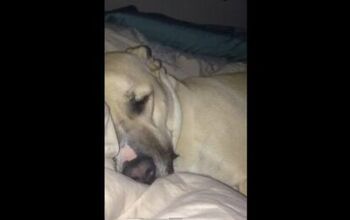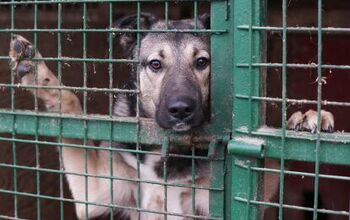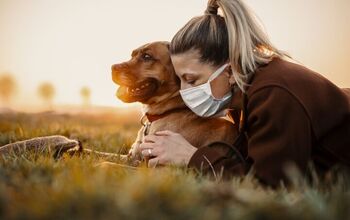Is Dog Snoring Normal?

Does it sound like your pet’s sawing wood whenever they take a nap? We hear you. It just so happens that dogs can snore like humans do, and some do it quite often and quite loudly. But what causes snoring in dogs, and is it normal? And is there a way to limit, reduce, or altogether eliminate it? Here are all the deets on dog snoring you need to know.
Is Dog Snoring Normal?
First off, yes, dog snoring can be completely normal. Just like humans, dogs can snore for various reasons. In most cases, it is not something you should worry about. Still, it can be somewhat distracting, and you might want to know what causes it. A number of factors can contribute to this issue – here are the most common ones.
- Brachycephalic Breeds:
Dogs with short noses and flat faces, known as brachycephalic breeds, are more prone to snoring. This conformation can lead to narrower air passages, making it harder for air to flow smoothly during breathing. Examples of brachycephalic breeds include Bulldogs, Pugs, Boxers, and Shih Tzus.
- Weight:
Overweight, chubby dogs may snore more frequently because excess weight can put pressure on their airways. Combined with excess fat on their neck, and the sleeping position, their snoring can be quite loud, especially during sleep.
- Age:
Believe it or not, age can cause snoring as well! Older dogs may snore more frequently and loudly as they age, just like some humans. Age can affect the muscles and tissues in a dog's throat. Older dogs may experience a relaxation of these tissues, contributing to snoring. Don't hold it against your senior furry friend, they can't help it!
- Sleeping Environment:
Ultimately, the environment in which a dog sleeps can influence snoring. For example, if the room is too dry, it may irritate the nasal passages, or if it's too warm, dogs may breathe with their mouths open, contributing to snoring. Try to find an ideal environment for them, or consider using an air humidifier to moisturize dry air.
- Allergies or respiratory issues:
Dogs can develop allergies to environmental factors like pollen, dust, or mold, leading to nasal congestion and snoring. Respiratory issues, such as infections or obstructions, may also cause snoring.
- Shape and Size of the Bed:
If your doggo prefers to sleep on a special bed or simply on the floor, it might be the reason for their snoring. The shape of the bed, and the position the dog lies on it, can make snoring worse. Try finding a special ergonomic dog bed that can remedy the issue. These types of beds are designed to provide proper support for your pet’s spine and body and can also help with other issues, such as stiff joints and reduced mobility, especially in seniors.
While occasional snoring is usually not a cause for concern, there are situations where it might indicate an underlying issue. That is why it's important for pet owners to observe their dogs and be familiar with their normal behavior. If your dog's snoring suddenly becomes louder or more frequent, or if it is accompanied by other signs of respiratory distress, it's a good idea to consult with a veterinarian. Additionally, if your dog is gasping for breath, coughing, or showing other signs of respiratory distress, it could be a serious problem that requires immediate attention.
If however, the reason for your pet’s snoring is simply natural, you might have to make peace with it and accept your furry friend just as they are. Or just get some earplugs to drone out the snoring sounds!

A proud mama to seven dogs and ten cats, Angela spends her days writing for her fellow pet parents and pampering her furballs, all of whom are rescues. When she's not gushing over her adorable cats or playing with her dogs, she can be found curled up with a good fantasy book.
More by Angela Vuckovic









![Top 10 Dog Breeds That Snore [Video]](https://cdn-fastly.petguide.com/media/2022/02/28/8268892/top-10-dog-breeds-that-snore-video.jpg?size=350x220)














